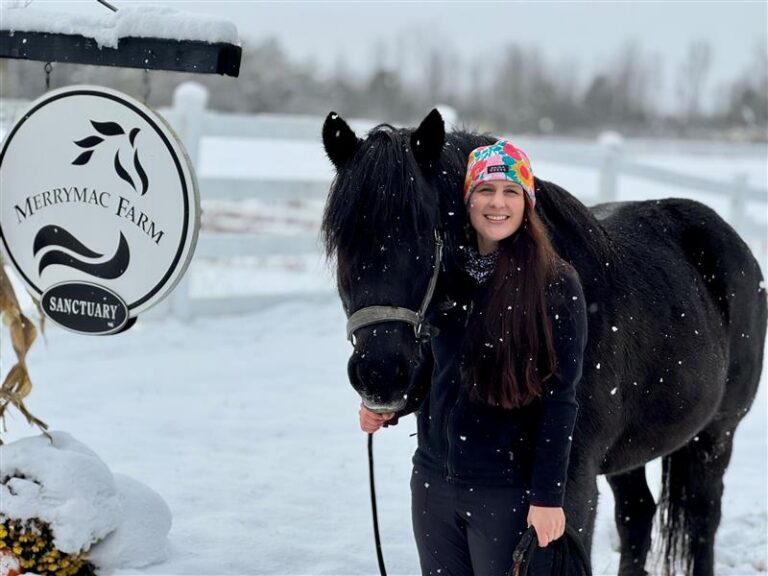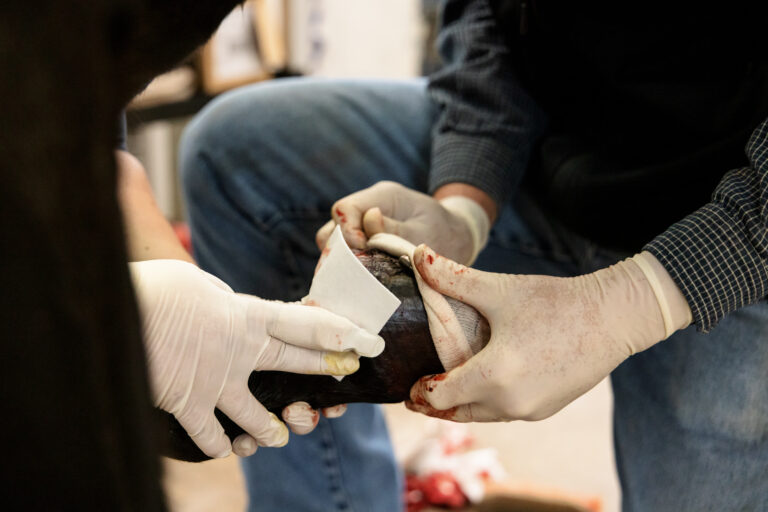
Even as the direct threat from the wildfires of California, Oregon and Washington state begins to wane, veterinarians need to understand that smoke generated from those fires has far-reaching and long-lasting effects on horses. The remarkable amount of smoke spawned by the wildfires has compromised air quality in many regions of the US—not just those in the fire-torn states—putting more horses at risk for respiratory disease then one might think.
To put the health implications of the smoke into perspective, try to remember how it feels sitting around a campfire and having the wind suddenly blow the smoke directly in your face—the burning and stinging sensation in your eyes and the irritation to your respiratory tract causing coughing fits.
The smoke from these wildfires is far more severe and much more relentless. And for horses with asthma, exposure to this smoke day after day exacerbates their disease, making every breath a struggle. Even healthy horses with no evidence of equine asthma can develop asthma-like clinical signs in the heat of the moment.
Smoke contains thousands of compounds, including toxic gases and microscopic airborne particles called PM (particulate matter measuring <2.5 microns). It is the PM component of smoke that poses the greatest threat to a horse’s respiratory health. When inhaled, these particles—which are about one-quarter of the size of a fine sand granule—can travel down into the depths of the horse’s lungs causing inflammation and spasming of the airways.

Back in 2018 when Calgary, Canada, was smothered in wildfire smoke, Renaud Léguillette, DVM, MSc, PhD, DACVIM, DACVSMR, and his colleagues at the University of Calgary worked with a group of polo ponies that were experiencing coughing at rest and decreased performance. Léguillette evaluated the horses’ airways and lung function approximately 30 days after they had first been exposed to the smoke and again periodically for the ensuing three weeks as the air quality improved.
Léguillette, the Calgary Chair of Equine Sports Medicine of the Faculty of Veterinary Medicine, University of Calgary, found that the polo ponies’ physical condition appeared predominantly normal. However, the horses were exhibiting signs of asthma, including chronic coughing, exercise intolerance and decreased performance. The horses were also scoped to score tracheal mucous and to perform a bronchoalveolar lavage (BAL).
As the air quality began to naturally improve after the fires, the amount of mucous in the horses’ tracheas determined by scoping decreased, indicating an improvement in smoke-induced asthma. Further, lung function—assed by measuring the horses’ maximal oxygen consumption or VOmax—improved by 13.2% as air quality improved.
In humans, recommendations for avoiding smoke are clear: stay indoors, use an N-95 mask when going outside and reduce physical activity. For horses, these recommendations are still applicable, yet substantially more challenging to implement than in humans.
Internal Medicine experts such as Nicola Pusterla, DVM, PhD, DACVIM, DAVDC-Equine, a professor of equine internal medicine and dentistry at the University of California, Davis, School of Veterinary Medicine, typically recommend turning all horses out as much as possible for optimal respiratory health. When air quality is poor, however, keeping a horse inside the barn with the windows and doors closed might protect them from smoke, but that situation is literally out of the fat and into the fire as far as equine respiratory health is concerned.
Pusterla acknowledged there are no magic bullets. “Probably the easiest way to reduce the impact of smoke is to not ride the horse and allowing the horse to find either indoor or outdoor areas that are less smoky—horses often know where the best place to stay is if they are given a chance to find it,” said Pusterla.
In addition, Pusterla recommended ample access to fresh water. “One could also try to run sprinklers in the corrals in order bind some of the airborne particles, especially if the ambient temperature is very high and the humidity low,” Pusterla added.

Check out this additional EquiManagement.com article on California Wildfire Smoke Spread.


![[Aggregator] Downloaded image for imported item #18953](https://s3.amazonaws.com/wp-s3-equimanagement.com/wp-content/uploads/2025/11/24165746/EDCC-Unbranded-18-scaled-1-768x512.jpeg)

